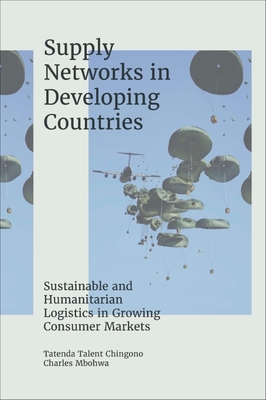Supply Networks in Developing Countries: Sustainable and Humanitarian Logistics in Growing Consumer Markets

Supply Networks in Developing Countries: Sustainable and Humanitarian Logistics in Growing Consumer Markets
Contributing to research, knowledge, and discourse on humanitarian logistics and supply chains in Africa, Supply Networks in Developing Countries introduces a unique perspective on the developing world, and how their supply networks can be enhanced and optimized.
The authors highlight the 4th Industrial Revolution, information technology, reverse logistics, supply chain modelling and block-chains, and how these can be the key to strengthening humanitarian logistics in developing countries. It discusses humanitarian supply chain management issues in relation to the increasing numbers of disasters and the complexity and magnitude of global emergency relief operations.
By exploring the roles and responsibilities of major stakeholders including donors, relief agencies, NGOs, governments, academia and cooperate business, this book provides the skills and knowledge needed to manage supply chains in both unpredictable and dire environments.
PRP: 1030.75 Lei
Acesta este Pretul Recomandat de Producator. Pretul de vanzare al produsului este afisat mai jos.
927.67Lei
927.67Lei
1030.75 LeiLivrare in 2-4 saptamani
Descrierea produsului
Contributing to research, knowledge, and discourse on humanitarian logistics and supply chains in Africa, Supply Networks in Developing Countries introduces a unique perspective on the developing world, and how their supply networks can be enhanced and optimized.
The authors highlight the 4th Industrial Revolution, information technology, reverse logistics, supply chain modelling and block-chains, and how these can be the key to strengthening humanitarian logistics in developing countries. It discusses humanitarian supply chain management issues in relation to the increasing numbers of disasters and the complexity and magnitude of global emergency relief operations.
By exploring the roles and responsibilities of major stakeholders including donors, relief agencies, NGOs, governments, academia and cooperate business, this book provides the skills and knowledge needed to manage supply chains in both unpredictable and dire environments.
Detaliile produsului









